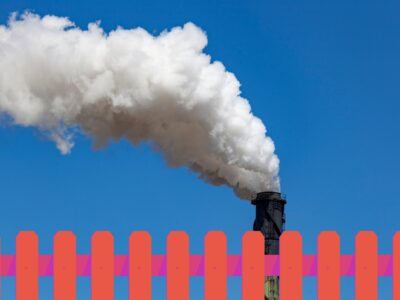EPA’s crime on its 40th birthday? Having accomplished too much
EPA head Lisa Jackson waded into hostile territory yesterday with a Wall St Journal editorial defending the agency and its work. It’s EPA’s fortieth birthday, and she uses the occasion to acknowledge forthrightly that “[w]e reach this milestone exactly one month after the midterm elections strengthened the influence of groups and individuals who threaten to roll back the EPA’s efforts.” She then presents a vigorous defense of EPA’s record, focusing especially on its role in stimulating, rather than hindering, economic growth:
The EPA’s efforts thrive on American ingenuity and entrepreneurship. Holding polluters accountable sparks innovations like the Engelhard Corporation’s catalytic converter, which pioneered the reduction of toxic emissions from internal combustion engines, and DuPont’s replacements for chlorofluorocarbons (CFCs), which protected the ozone layer while turning a profit for the company. One executive told me that the EPA’s recent standards for greenhouse gas emissions from cars will help create hundreds of jobs in a state where his company operates—a state whose U.S. senators have both opposed the EPA’s authority to regulate greenhouse gases.
These attacks are aimed at the EPA, but their impacts are felt by all Americans. Pollutants like mercury, smog and soot are neurotoxins and killers that cause developmental problems and asthma in kids, and heart attacks in adults. We will not strengthen our economy by exposing our communities and our workers to more pollution.
Unfortunately, her agency is vulnerable precisely because of its successes. Some colleagues and I were trying, yesterday, to imagine the late-60s and early-70s culture that allowed for sweeping, bipartisan support for landmark laws like the Clean Water Act, Clean Air Act, and Endangered Species Act — and the creation of the EPA itself. It’s hard to fathom such widespread DC support for any of these efforts today. But we had to remind ourselves (as Ms. Jackson reminds readers in her editorial) of the high-profile, inescapable environmental degradations that gave rise to her institution: filthy air, burning rivers, toxic messes.
These problems persist today, but to a lesser degree and often in much less palpable forms. (Take GHGs in the atmosphere as an example: invisible, odorless, no burning flames to rush to extinguish.) And it is apparently too easy to take for granted today’s relatively cleaner environment as some natural state, rather than as the product of decades of intensive, (mostly) effective government intervention. If EPA’s first forty years had been less successful, it wouldn’t now be worrying about a mandate for its next forty.
Reader Comments
One Reply to “EPA’s crime on its 40th birthday? Having accomplished too much”
Comments are closed.








Great Post! EPA has done very well. And promotes business.
There will *always* be work to do to protect the environment. EPA is not like those agencies that are funded by cigarette taxes and are supposed to dissuade people from smoking. People at those agencies must be scared to death that smokers will actually quit.
It’s difficult to understand Nixon’s mind, but he wasn’t afraid of grand gestures and bold initiatives.
Of course GHGs come with “no burning flames to rush to extinguish” — doesn’t CO2 actually extinguish burning flames?
🙂